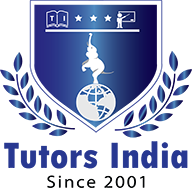A Dissertation on the impact of HRM practices on the implementation of TQM
Tagged: Dissertation Writing
Introduction
Human resources (HR) is the most crucial asset for any organisation since they drive organisational operations as operators, maintainers, producers, and designers of each system in the organisation (Halsa, 2022). The quality of human resources is a deciding factor for success in an organisation. Knowledge, skills, and abilities are the deciding factors contributing to the quality. Human Resource Management (HRM) is a concept that aims to overcome the shortcomings in an organisation. It includes meticulous planning, organising, leading, and controlling in an organisation (Samolejova, 2016). HRM is frequently related to the development of new and innovative types of work to improve the effectiveness of an organisation. Extensive evidence shows that the value of these has increased (Gabriel, 2016).
Total Quality Management (TQM) has gained popularity in recent years as a management strategy since it helps organisations achieve better results. TQM can be defined as “an integrated management philosophy and set of practices emphasising, among other things, continuous improvement, meeting customer requirements, reducing rework, long-term thinking, increased employee involvement and teamwork, process redesign, competitive benchmarking, team-based problem-solving, continuous measurement of results, and closer relationships with suppliers.”
In an organisation, TQM has numerous advantages, such as better consumer satisfaction and improved performance (Topalovic, 2015), a positive impact on improving the image of an organisation, increased awareness among the employees, enhanced corporate social responsibility and improved financial performance (Al Salihi, 2021).
To know more about research on TQM and HRM, check out our blog on TQM-based HRM practices: An employee’s perspective.
Literature review
In the early 1990s, some consultants conducted TQM activities. They developed training activities that are within the scope of HRM. This strategy was considered problematic, and later, it became the responsibility of the Human Resource Management department to ensure the quality of the organisation. Failure of HRM to transmit TQM messaging might result in unsuccessful TQM activities, as it is HRM’s role to educate members of the organisation (Sarwar, 2016).
Studies done later revealed that HR management practices and TQM are crucial for the sustainability of the companies. A study by Chams and García-Blandón (2019) indicated that sustainable human resource management is crucial for TQM. Another study by Lahiani (2016) indicated that HRM is vital for the sustainable performance of an organisation.
Human Resource Management (HRM) serves as a catalyst for TQM implementation in the firm by improving competencies, employee motivation, and cultural change in favour of TQM implementation and serving as reinforcement for human connections and group formation. Connecting HRM and TQM practices results in high-quality products and services, as well as better productivity and performance at the lowest possible cost (Wolor, 2022). Human Resources Management methods in TQM practices are not optional; they are a required component for successfully implementing quality management practices. HRM and TQM practices are interlinked, and quality management practices improve performance quality (Tawalbeh, 2020).
TQM is a holistic strategy to enhance organisational performance and consumer satisfaction, whereas HRM is critical in establishing an organisation’s culture, developing human capital, and supporting change.
Objectives
The study aims to explore the association between Human Resource Management and Total Quality Management practices in two food firms in Alcester, UK.
Methodology
A self-administered survey was used for the study. The survey instrument is intended to collect data and information from respondents about TQM and HRM practices in the organisation. Data was collected from employees at the managerial level in the HR, Quality, and Production departments. About 20 surveys were issued by personally contacting individual respondents, with 17 questionnaires returned; of these, 15 replies were considered for analysis, while the others were rejected due to insufficient information.
The questionnaire consisted of three parts: the first part included the demographical characteristics, and the second part comprised the components of human resource management like organisational culture, organisational change, recruitment and selection, employee reward, employee involvement, performance appraisal and employee training. The final part consisted of components of TQM, such as continuous improvement, benchmarking, consumer satisfaction, quality measurement, process measurement and top management commitment. The questionnaire was framed using a five-point Likert scale. The data was then analysed using MAXQDA.
Results
From the findings, it was revealed that all the participants were aged between 20 and 45 years. About eight of the participants were female, and eight were male. About 10 (67%) participants had a bachelor’s degree. Four (27%) of the participants were unmarried, seven were married (46%), and the remaining four were separated. Among the factors related to human resource management, most participants emphasised the importance of employee reward, training and performance appraisal. Regarding total quality management, the respondents recognised the importance of consumer satisfaction, top management commitment, benchmarking and continuous improvement.
Discussion and Conclusion
Employees have a huge influence on how a firm develops in the future. In order to provide the highest performance and preserve a competitive advantage, a dynamic organisation will always boost its production through consistency. The component most likely to provide a competitive edge to the organisation is Human Resource Management, namely how to manage these resources effectively (Farida, 2022).
According to Khan et al. (2019), integrating methods into HR practices will increase employee commitment and satisfaction, resulting in significant improvements in individual and team performance. Employee effectiveness is heavily influenced by the influence of HR practices on employee behaviour.
Managers influenced by the concept of TQM have begun to recognise that the key to managing people in ways that lead to profits, productivity, creativity, and true learning is in their viewpoints. They are looking for ways to create a committed workforce because they recognise that in order to benefit from TQM concepts fully, quality must be instilled at all levels of the organisation’s hierarchical processes.
Creating commitment from employees to engage in and enhance work processes, on the other hand, necessitates managers at all levels committing to quality first (Sharma, 2021).
Conclusion
Based on the study, it is evident that there is a positive association between TQM and HRM practices from the perspectives of employees and HR managers. The introduction of a blended culture of HRM and TQM will improve the quality of the product as well as the performance of both organisations and employees. Before implementing TQM practices, organisations should identify which HRM practices are vital to their business processes and prioritise them. However, there are a few limitations, such as a small sample size in the same industry, which could not be generalised in all organisations. Future research can delve into larger samples in different organisations.
To know more about how a dissertation is written in other disciplines, check out our dissertation examples.
References
- Halsa, D., Hawignyo, & Supriyadi, D. (2022). Peranan Manajemen Sumber Daya Manusia dalam Organisasi. Jurnal Manajemen Dan Sains, 7(2), 663–667.
- Cech, M. Yao, W. Samolejova, A. Li, J. and Wicher, P. (2015). Human Resource Management in Chinese Manufacturing Companies. Perspectives in Science, 1-7.
- Gabriel, A.S. Cheshin, A. Moran, C.M. and van Kleef, G.A. (2016). Enhancing emotional performance and customer service through human resources practices: A systems perspective. Human Resource Management Review, 26(1), 14-24.
- Topalovic, (2015). The implementation of total quality management in order to improve production performance and enhancing the level of customer satisfaction. Procedia Technology.
- Al Salihi, Rasha & Ghasemlounia, Redvan. (2021). Total Quality Management Benefits and Barriers in Construction Industry. SSRN Electronic Journal.
- Sarwar, A., Hooi, P. S. C., & Haque, A. (2016). Connection Between TQM and HRM in the Malaysian Private Smes. Middle-East Journal of Scientific Research, 24(10), 3256–3262.
- Chams, N., & García-Blandón, J. (2019). On the importance of sustainable human resource management for the adoption n of sustainable development goals. Resources, Conservation and Recycling, 141, 109-122.
- Lahiani, N.; El Mhamedi, A.; Hani, Y.; Triki, A. A novel improving method of industrial performance based on human resources management. IFAC-PapersOnLine2016, 49, 262–267.
- Wolor, C. W., Musyaffi, A. M., Nurkhin, A., & Tarhan, H. (2022). Employee Perceptions of TQM-Oriented HRM Practices for Perceived Performance Improvement in the Case of Companies in Indonesia. Asian Journal for Public Opinion Research, 10(2), 123–146.
- Tawalbeh, F. and Jaradat, M. (2020), “The Associations among Human Resource Management (HRM) Practices, Total Quality Management (TQM) Practices and Competitive Advantages”, Journal of Social Sciences (COES&RJ-JSS),Vol. 9, No. 2, pp. 505-534.
- Farida, I., & Setiawan, D. (2022). Business Strategies and Competitive Advantage: The Role of Performance and Innovation. Journal of Open Innovation: Technology, Market, and Complexity, 8(3), 163. Elsevier BV.
- Khan, M. A., Mdyusoff, R., Hussain, A., & Ismail, F. (2019). The mediating effect of job satisfaction on the relationship of HR practices and employee job performance: Empirical evidence from the higher education sector. International Journal of Organizational Leadership, 8, 78–94.
- Sharma, and Rahim, M.A. (2021), “TQM and HRM: an integrated approach to organisational success”, Journal of Comparative International Management, Vol. 24, No. 1, pp. 27-41.


